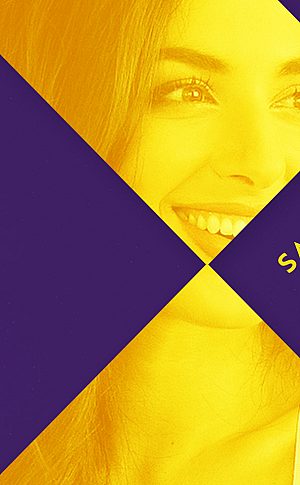We sat down with trust futurist and innovation strategist Philipp Kristian Dieköner about his experiences in the Speaking industry and his perspectives on the future of leadership and its challenges moving forward.
Q:What is the unique perspective you in general bring to the US events industry?
Philipp: When I landed Singapore 2013 to start an innovation strategy domain in a global experience and strategy consulting firm, their Chairman gave me an incredible piece of advice. After seeing me present, she said: 'Phil, your content is great, but it’s your authentic passion that's really special.’ I believe in changing human behaviour for the better by giving people a completely new way of looking at trust and innovation in the digital economy. I show my audience exactly how to translate this into action, and firmly believe speakers and audiences must want to walk the talk. If we trust the right things, we make the right choices, and those choices create the right future.
It’s hard to combine deep content with real entertainment, but that’s the best way to educate and engage – and mastering that is my mission to get the message across. I’m that wildcard, I believe small ambition can only ever lead to small outcomes. As one of my clients in Africa recently put it: ‘Your presentation was incredible and caused a real mind shift for many as we all contemplate and plan for our Vision 2030. Your message set the tone for the conference, and we received fantastic reviews of your performance from everyone!’ I also funded the planting of 9,999 mangroves in the Bay of Bengal to offset my carbon emissions for decades, and I’m planning to 10x that number. In the end, it’s about real impact.
Q: What are the biggest challenges you foresee in the Trust landscape in the next 5 years?
Philipp: On the one hand, we live in a world of inflationary distrust (think security checks, contracts, compliance and so on.) It’s necessary, but it wastes time and annoys most of us. All this bureaucracy effectively prevents important change, because its job is to protect the status quo. Global productivity gains per year have essentially been on the decline since the 1950s. While technology is advancing exponentially, we’re unable to do the same with productivity. So, distrust is creating a productivity and innovation ceiling. I call the distrust epidemic. It’s ineffective and on top of that nobody really likes to distrust, we just got used to it.
On the other hand, we see the complete opposite across the digital economy. We very willingly trust digital interfaces, platforms and the data and technology powering them. Marketplaces and peer-to-peer business models have changed our behaviour and we nowadays easily trust strangers online. This has led to a kind of overtrust in the digital economy. I mean, do you read the terms and conditions before clicking accept?
I see two major problems with this. Young generations, meaning Gen Y, Z and whoever comes after this, will increasingly and indiscriminately trust technology because it makes life easier to do so. Meanwhile Baby Boomers and Gen X will be more sceptical, and resist this somewhat. It means the disconnect between generations is likely to escalate. More senior generations are used to expecting trust to be earned, young folks trust fast and also want to be trusted by default (until or unless they screw up.) This dynamic already causes lots of frustration inside organisations, because different generations have these different attitudes to trust, data and technology. It’s a constant blame game of ‘why don’t you trust me’ versus ‘why don’t you work towards earning my trust.’ It’s highly dysfunctional.
So what does this give us? Ironically, the distrust epidemic is currently being replaced by a digital trust epidemic. The trust-first camp will over trust and take far too high risks until (in the worst case) everything comes crashing down. This might lead them to lose everything and even cause major disasters (just think of the Cybersecurity issues we already have today!) Meanwhile, people and companies who embrace distrust as a first principle will keep adding more rules until it becomes impossible to compete. As the world gets every more complex, they will eventually grind to a halt, suffocated by all that distrust.
Fortunately, there’s a middle way. Smart organisations are starting to realise that less rules can result in more compliance, and many innovative companies are showing that trust-first does not necessarily equal naive. A solution is for all camps to come to the table, understand each other’s different sentiments, and find a healthy balance between too much and too little trust.
Q: What inspires you about the future of Trust?
Philipp: Nobody likes distrusting. The Trust Economy is driving a relationship renaissance, and that will re-humanise our mostly transactional global economy. I also think it’ll ensure fair distribution of value. If you knew the person that made your T-Shirt, you’d probably agree that they deserve a fair compensation for their work. One of the biggest trends we’re seeing right now is that transparency, provenance and sustainability (knowing where things come from, and that they are made consciously) is demanded more than ever. This will help create a global village of inclusive socioeconomic progress. As humans we’re deeply wired to trust and bond together. Say a dozen people that don’t know each other are put in a room, given 12 dollar-notes and asked to share them among the group. How much do you think everyone gets? Simple answer, right? Yet in the global economy, value distribution is more skewed. Turns out that this may well be the reason why our incremental happiness gained through economic prosperity plateaus at a middle-income level. Win-win situations are more satisfying than win-lose dynamics. We are all born to care for our tribes, meaning that we have the chance to create a future in which trust drives humanity and wellbeing. In fact, we already know that high-trust environments make us feel amazing – mutual trust stimulates our brain to synthesise the kind of hormones that makes us feel good. No wonder the world’s highest-performing teams operate on principles of high-trust.
Q: What made you want to become a Speaker and share your story?
Philipp: Well, when I was a kid, I didn’t go to my parents and say ‘Mom, Dad, I really want to be a Keynote Speaker when I grow up...’ I originally wanted to be a designer to express my creativity and create experiences for people that would make their life better in some way. As a not-even 10-year-old, I drew cockpits and exteriors of Mercedes-Benz cars - because of the Daimler factory in my home town of Bremen, Germany used to be one of my dad’s biggest clients. One day I pulled together all my sketches and told my dad to pass them on to the Chief car designer there. As a token of appreciation, I was invited to accompany the AMG performance car test drivers on the test track, which had this incredible bowl bend where the car would almost be 60° sideways… that was like heaven for an eight-year-old boy! And, legend has it that some of those designs inspirations actually made it into production vehicles.
Now, some 20 years later, I look back at so many experiences where I was either the youngest to do something, or the first, or both. And there were other signs! At 15, I won a national German youth debating competition in my state, and with it, a weekend of professional Speaker training. My grandpa was a German member of parliament and a natural when it came to speaking. The same goes for my dad, who is a gifted public Speaker. But my speaking really started when I moved to Asia to help shape some of Singapore’s successful tech start-ups and corporate transformation and innovation efforts. I eventually started on my book and somehow got connected to the founder of a well-known Speaker management company. She really showed me the ropes, and I told her I’d be a full-time Speaker 24 months later. She famously said, ‘you won’t be ready.’ By 2018, I switched to full-time Speaking. This year, she spoke with me about management, but I went Saxton instead. Showing someone the ropes is nice, but you gotta trust in their potential, even when it’s only beginning to take shape.
Q: What is your most memorable event experience as a Speaker?
Philipp: So many experiences were truly amazing! Also, hilarious things happen to me during my travels, which must be because I’m generally quite open and trusting, and sometimes a little clumsy… One time, I had to flag down a random stranger in the middle of nowhere to tow a brand-new rental car out of a roadside sand pit in the Arizona desert, because I'd mistaken it for a road shoulder… Which was right before one of my most memorable events ever - doing the opening for a massive sales leadership event in Las Vegas. I have to say, nobody beats Americans when it comes to entertainment and event production! I generally find US audiences exciting, because they amplify your energy. Honestly, the best part of a great event is when you know you’ve enriched the audience and your clients’ message. It’s highly addictive :)
Q: and a quick bonus question, how do you eat your Vegemite?
Philipp: Pure, of course! By disintermediating the carrier medium (i.e. bread) you dramatically improve the experience... ;)
DISCLAIMER: Saxton would like to make clear that Philipp is German and therefore his Vegemite habits are not reflective of the Australian population. Saxton will not be held responsible for any harm to tastebuds that come as a result of following his advice.

